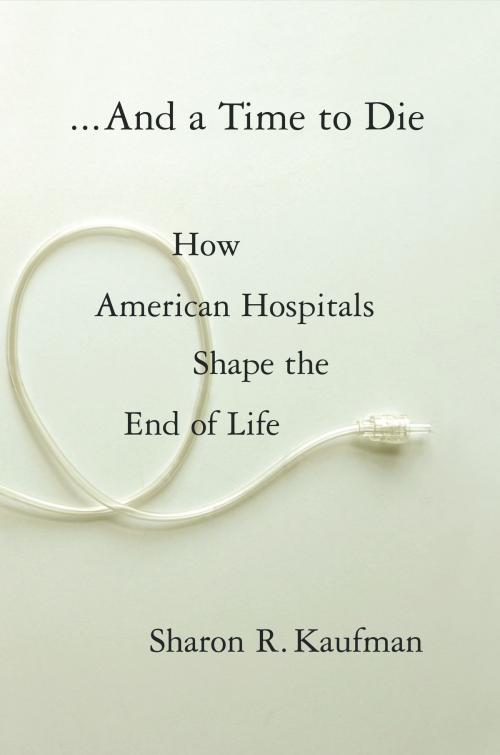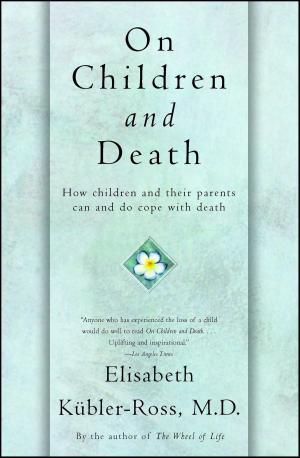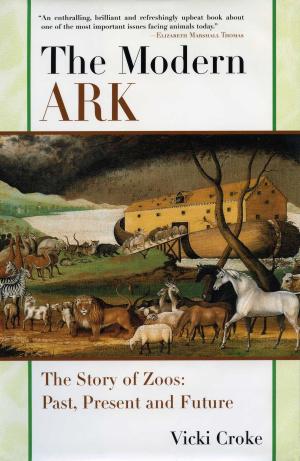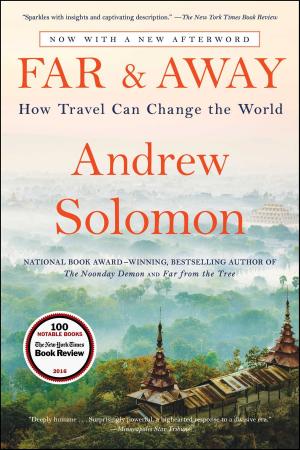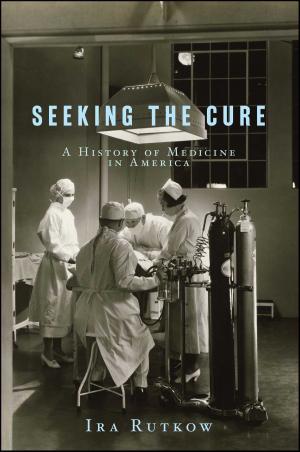And a Time to Die
How American Hospitals Shape the End of Life
Nonfiction, Health & Well Being, Self Help, Mental Health, Death, Grief, Bereavement| Author: | Sharon Kaufman, M.D. | ISBN: | 9780743282529 |
| Publisher: | Scribner | Publication: | April 19, 2005 |
| Imprint: | Scribner | Language: | English |
| Author: | Sharon Kaufman, M.D. |
| ISBN: | 9780743282529 |
| Publisher: | Scribner |
| Publication: | April 19, 2005 |
| Imprint: | Scribner |
| Language: | English |
Most Americans, when pressed, have a vague sense of how they would like to die. They may imagine a quick and painless end or a gentle passing away during sleep. Some may wish for time to prepare and make peace with themselves, their friends, and their families. Others would prefer not to know what's coming, a swift, clean break. Yet all fear that the reality will be painful and prolonged; all fear the loss of control that could accompany dying.
That fear is justified. It is also historically unprecedented. In the past thirty years, the advent of medical technology capable of sustaining life without restoring health, the expectation that a critically ill person need not die, and the conviction that medicine should routinely thwart death have significantly changed where, when, and how Americans die and put us all in the position of doing something about death.
In a penetrating and revelatory study, medical anthropologist Sharon R. Kaufman examines the powerful center of those changes -- the hospital, where most Americans die today. In the hospital world, the deep, irresolvable tension between the urge to extend life at all costs and the desire to allow "letting go" is rarely acknowledged, yet it underlies everything that happens there among patients, families, and health professionals. Over the course of two years, Kaufman observed and interviewed critically ill patients, their families, doctors, nurses, and other hospital staff at three community hospitals. In*...And a Time to Die,* her research places us at the heart of that science-driven yet fractured and often irrational world of health care delivery, where empathetic yet frustrated, hard-working yet constrained professionals both respond to and create the anxieties and often inchoate expectations of patients and families, who must make "decisions" they are ill-prepared to make.
Filled with actual conversations between patients and doctors, families and hospital staff,...And a Time to Die clearly and carefully exposes the reasons for complicated questions about medical care at the end of life: for example, why "heroic" treatment so often overrides "humane" care; why patients and families are ambivalent about choosing death though they claim to want control; what constitutes quality of life and life itself; and, ultimately, why a "good" death is so elusive.
In elegant, compelling prose, Kaufman links the experiences of patients and families, the work of hospital staff, and the ramifications of institutional bureaucracy to show the invisible power of the hospital system itself -- its rules, mandates, and daily activity -- in shaping death and our individual experience of it.
...And a Time to Die is a provocative, illuminating, and necessary read for anyone working in or navigating the health care system today, providing a much-needed road map to the disorienting territory of the hospital, where we all are asked to make life-and-death choices.
Most Americans, when pressed, have a vague sense of how they would like to die. They may imagine a quick and painless end or a gentle passing away during sleep. Some may wish for time to prepare and make peace with themselves, their friends, and their families. Others would prefer not to know what's coming, a swift, clean break. Yet all fear that the reality will be painful and prolonged; all fear the loss of control that could accompany dying.
That fear is justified. It is also historically unprecedented. In the past thirty years, the advent of medical technology capable of sustaining life without restoring health, the expectation that a critically ill person need not die, and the conviction that medicine should routinely thwart death have significantly changed where, when, and how Americans die and put us all in the position of doing something about death.
In a penetrating and revelatory study, medical anthropologist Sharon R. Kaufman examines the powerful center of those changes -- the hospital, where most Americans die today. In the hospital world, the deep, irresolvable tension between the urge to extend life at all costs and the desire to allow "letting go" is rarely acknowledged, yet it underlies everything that happens there among patients, families, and health professionals. Over the course of two years, Kaufman observed and interviewed critically ill patients, their families, doctors, nurses, and other hospital staff at three community hospitals. In*...And a Time to Die,* her research places us at the heart of that science-driven yet fractured and often irrational world of health care delivery, where empathetic yet frustrated, hard-working yet constrained professionals both respond to and create the anxieties and often inchoate expectations of patients and families, who must make "decisions" they are ill-prepared to make.
Filled with actual conversations between patients and doctors, families and hospital staff,...And a Time to Die clearly and carefully exposes the reasons for complicated questions about medical care at the end of life: for example, why "heroic" treatment so often overrides "humane" care; why patients and families are ambivalent about choosing death though they claim to want control; what constitutes quality of life and life itself; and, ultimately, why a "good" death is so elusive.
In elegant, compelling prose, Kaufman links the experiences of patients and families, the work of hospital staff, and the ramifications of institutional bureaucracy to show the invisible power of the hospital system itself -- its rules, mandates, and daily activity -- in shaping death and our individual experience of it.
...And a Time to Die is a provocative, illuminating, and necessary read for anyone working in or navigating the health care system today, providing a much-needed road map to the disorienting territory of the hospital, where we all are asked to make life-and-death choices.
